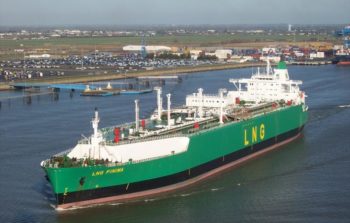
The House of Representatives has jeopardised the future of Liquefied Natural Gas (LNG) investment worth billions of dollars with the recent passage of the NLNG Amendment Act, the General Manager, External Relations of the company, Kudo Eresia-Eke has said.
Eresia-Eke said in Abuja that the country would be making a huge mistake if the Senate concurs with the lower house to pass the amendment.
According to him, beside the loss of investments in the sector, the amendment of the Act will further return the country to the era of high gas flaring that will continue to damage the Niger Delta region.
He said right now the NLNG Train 7 project that could have drastically reduced flaring when completed is being threatened by process to amend the NLNG Act.
The House of Representatives had last month passed a bill seeking to amend the NLNG Act to compel the company to pay 3 percent of its total annual budget to the Niger Delta Development Commission (NDDC). The bill is now said to be at the Senate for concurrence.
Industry stakeholders, including unions in the oil industry, have kicked against passage of the bill, which they said will obviously breach the promises of government to its co-investors as well as damage the country’s ability to attract future investments.
NLNG is Nigeria’s biggest and most successful indigenous company owned by the Federal Government, represented by the NNPC (49 per cent); Shell Gas (25.6 per cent); Total (15 per cent) and Eni (10.4 per cent). It buys gas, which should have been flared and liquefies it for export.
The Bonny Island plant of the NLNG has six Trains with plans to expand further to Train 7. Trains are units that freeze natural gas into liquid form for export on ships.
“We were hoping that Train 7 would be able to take in more flares and eventually bring it down to less than 10 per cent,” Eresia-Eke said, explaining that Nigeria was one of the highest gas flaring nations in the world, flaring gas at about 65 per cent until the inception of NLNG which reduced it to less than 20 per cent.
“But no one that has been involved in passing the bill at the House appear to understand the implication of what they are doing because if we throw away that project (Train 7), flaring will remain at the level it is and it will continue to burn and damage the Niger Delta,” he said.
Eresia-Eke said any amendment will also mean an immediate potential loss of foreign investment of $25 billion in respect of Train 7.
“This biggest project that is coming worth over $25 billion will go away; 18,000 job opportunities that will mostly go to the Niger Delta is being driven away by this same amendment,” he said of the implication of the passage of the bill.
He said the country cannot afford to kill a company like the NLNG that had paid over $15 billion as dividends to the Nigerian government, $23 billion in gas purchases and generated over $90 billion as revenues with assets in-country that is worth over $11 billion.
“The shareholders will make the decision whether to approach international court,” he said when asked whether the NLNG was exploring alternatives at international courts.
“We didn’t think that this was something Nigeria should be subjected to, it is absolutely unnecessary,” he said.